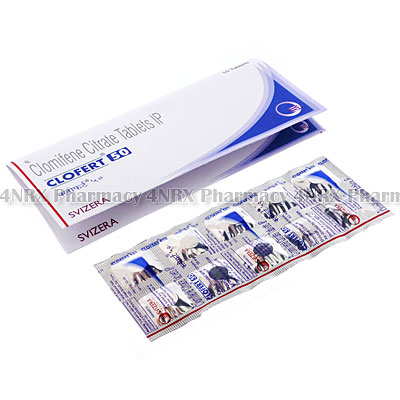 |
Home  Womens Health Womens Health  Clofert (Clomifene Citrate) Clofert (Clomifene Citrate) |
|
|||||||||
|
Clofert (Clomifene Citrate) (KLOE-mi-feen)
What is Clofert (Clomifene Citrate) used for? Clofert (Clomifene Citrate) is used as a treatment for infertility in women. This drug belongs to a class of drugs known as ovulatory stimulants. It helps women who do not produce eggs but wish to become pregnant by stimulating certain hormones in the body that support ovulation. How should I use Clofert (Clomifene Citrate)? Patients should take Clofert (Clomifene Citrate) tablets orally. This drug is usually taken in cycles of 5 days. However the exact dosage required varies, depending on the patient's condition and medical history. Therefore, it is necessary to consult your physician prior to commencing treatment with this medication, in order for the correct dosage to be prescribed. What are the side effects of Clofert (Clomifene Citrate)? Some side effects which have been reported by patients taking Clofert (Clomifene Citrate) include:
Patients should note that there are also other more serious side effects associated with this drug. In rare cases it has been known to cause a serious condition known as ovarian hyperstimulation syndrome (OHSS). This condition can be lethal. Consult your physician immediately if you notice swollen legs or hands, abdominal pain and inflammation, breathlessness, an increase in weight and nausea. Please Note Strictly follow all instructions provided to you by your physician or pharmacist while using Clofert (Clomifene Citrate). Optimum and safe dosage can differ based on the patient and the condition being treated. As this medication may be unsafe for certain patients, it is essential you always inform your physician if you have any allergies, other illnesses, or ongoing health conditions, and if you are taking any other form of medication, supplements, or herbal products. This medication should not be taken by women who are pregnant, as it is known to cause birth defects. Women who wish to breastfeed are advised to consult their physician before breastfeeding. Immediately seek emergency medical care if you have any allergic or hypersensitive reaction. Common signs of a reaction include hives, swelling, skin rashes, chest pains, as well as trouble breathing or swallowing. 

|
|||||||||||||||||